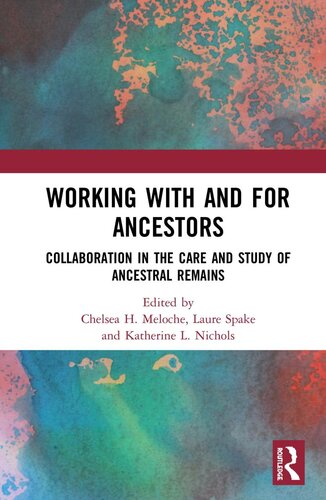

Most ebook files are in PDF format, so you can easily read them using various software such as Foxit Reader or directly on the Google Chrome browser.
Some ebook files are released by publishers in other formats such as .awz, .mobi, .epub, .fb2, etc. You may need to install specific software to read these formats on mobile/PC, such as Calibre.
Please read the tutorial at this link: https://ebookbell.com/faq
We offer FREE conversion to the popular formats you request; however, this may take some time. Therefore, right after payment, please email us, and we will try to provide the service as quickly as possible.
For some exceptional file formats or broken links (if any), please refrain from opening any disputes. Instead, email us first, and we will try to assist within a maximum of 6 hours.
EbookBell Team

4.1
60 reviewsIn the interest of reconciliation, museums and research institutions around the world have begun to actively seek input and direction from Indigenous descendants in establishing collections care and research policies. However, true collaboration is difficult, time-consuming, and sometimes awkward. By presenting examples of projects involving ancestral remains that are successfully engaged in collaboration, the book provides encouragement for scientists and descendant communities alike to have open and respectful discussions around the research and care of ancestral human remains. Key themes for discussion include new approaches to the care for ancestors; the development of culturally sensitive museum policies; the emergence of mutually beneficial research partnerships; and emerging issues such as those of intellectual property, digital data, and alternatives to destructive analyses. Critical discussions by leading scholars also identify the remaining challenges in the repatriation process and offer a means to continue moving forward.
This volume will appeal to a broad, interdisciplinary audience interested in collaborative research and management strategies that are aimed at developing mutually beneficial relationships between researchers and descendant communities. This includes students and researchers in archaeology, anthropology, museums studies, and Indigenous communities.